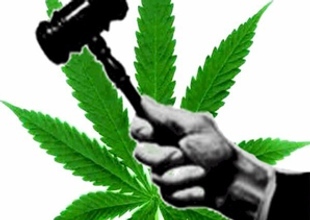... CONTINUES.

Drug Warrior Spin #3: Regulating marijuana will aid drug cartels.
It is practically Orwellian to claim that state regulation of marijuana would benefit criminal cartels. More than 20,000 Mexicans have died in the last three years thanks to prohibition. There is nothing inherent about the plant that has caused these brutal murders. Banning marijuana makes it worth more than gold, so valuable that people are willing to kill each other over the right to sell it. By regulating marijuana and beginning to bring its production and distribution under the rule of law, we would eliminate the cartels’ existing monopoly and dramatically siphon their profits. They would be the biggest losers in this reform.
Drug Warrior Spin #4: Regulating marijuana would cost society more than the taxes it generates.
Taxing marijuana like alcohol statewide would generate $1. 4 billion in California alone, according to the state Board of Equalization. Californians will also save hundreds of millions in scarce law enforcement dollars currently devoted to enforcing these futile laws. Yet opponents say that drugged driving, increased health care costs, and lost productivity will end up costing much more than taxes would generate. By that logic, alcohol, which causes nearly 100,000 American deaths annually, should be illegal and warrant life without parole. The bottom line is that marijuana is California’s largest agricultural commodity, freely consumed by millions with no regulations or protections, and with no financial benefit to the state. In this economic climate, this is a reality we literally can’t afford to ignore any longer.
Drug Warrior Spin #5: What kind of message does regulating marijuana send to kids?
The irony is that failed marijuana prohibition does nothing to protect kids. Despite 30 years of “Just Say No,” half of high-school seniors admit to trying marijuana. Students are more likely to smoke marijuana than cigarettes and say it’s easier to buy marijuana than alcohol because drug dealers don’t ask for ID. Even more chilling, of the 78,000 Californians arrested for marijuana offenses in 2008, one in five was a child under 18 and half were under 30. Out of control access and mass arrests are prohibition’s true impact on our youth. State regulation will reduce that access, separate marijuana from harder drugs, and allow us to focus on effective youth drug education programs.
We will see these arguments play out repeatedly over the next six months. In the end, California will get to choose between two very different models of dealing with marijuana in our society.
Source: alternet.org
Tony Newman is communications director for the Drug Policy Alliance.
Stephen Gutwillig is the California state director of the Drug Policy Alliance.